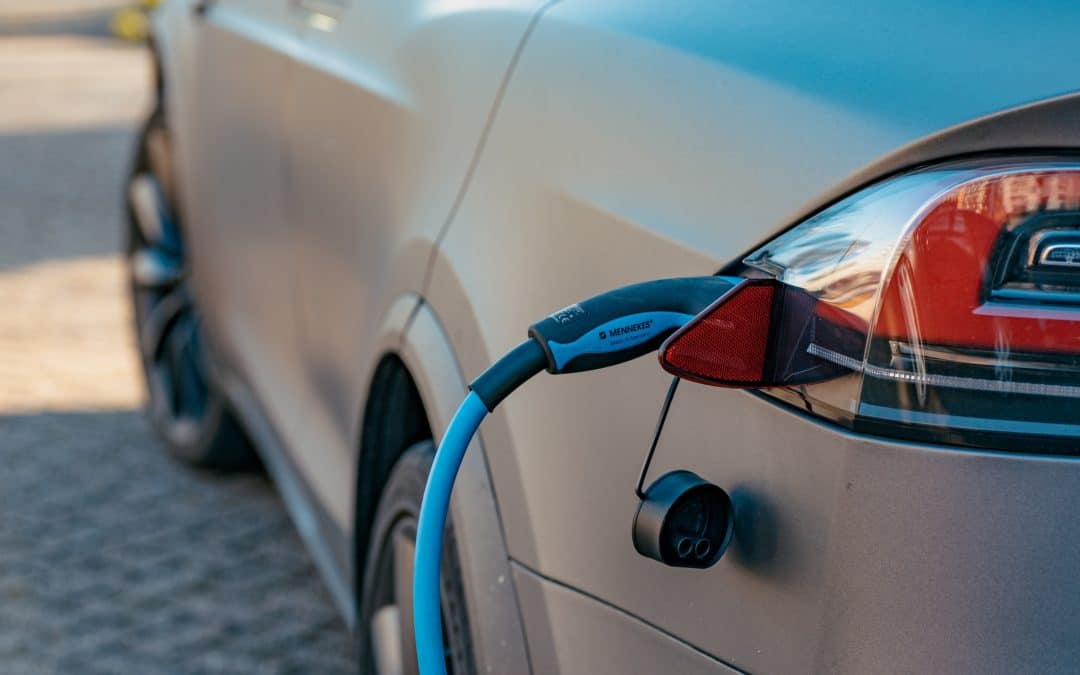GoCleaner
Swap to options like electric vehicles, cleaner fuels and fewer kilometers to reduce your transport footprint. Grow your own food!
Good evening ladies and gentlemen,
We are already on the ninth day of our global challenge!
Did you know? Toxic emissions from tailpipes of diesel and petrol cars have caused tens of thousands of premature deaths each year.

A major cause of air pollution in the city is the high number of traditional motor vehicles. Such vehicles run on diesel or gasoline. As a result, they emit substances such as carbon monoxide, nitrogen oxides, hydrocarbons, and particulate matter. It is these substances that cause air pollution. Air pollution then leads to health problems like asthma, lung cancer, emphysema, heart disease, and death.
T'Leva bets on electric cars to solve mobility problems in Angola

T'Leva, an Angolan urban mobility company, has just presented an electric mobility solution to the market, through the introduction of 1000 electric cars in Angola, becoming the first company in Africa to offer an urban electric mobility fleet of this size.
A major investment
22 million USD, is the investment that T'Leva received, which allows to project the entrance in other African countries,
The electric cars used by T'Leva, a solution with zero emissions of of CO2, results from a partnership with Ledo Holding, one of the main electric vehicle manufacturers in China.
Launched in April 2019, the T'leva now offers both options: cars with combustion engines and electric cars. Electric cars are already circulating in the city of Luanda and, soon, electric motorcycles will be added to the fleet of that company.
A growing number of governments are addressing air pollution by promoting the use of electric vehicles. Unlike traditional motor vehicles, electric vehicles do not run on diesel or gasoline. Electric vehicles, therefore, do not emit air pollutants. Furthermore, electric vehicles are very economical—they help motorists reduce fuel consumption.
The President of the Republic of Angola, João Lourenço, expressed the desire to see as soon as possible the conditions created for the use of electric vehicles in the country and, for that purpose, ordered the creation of a multi-sectorial commission, coordinated by the Minister of Transport, which will deal with of all legal and administrative regulations.
Electric Vehicles - A Solution to Air Pollution. What are the benefits on Environment?
Emissions from brakes and tyres must be regulated
Expected improvements to air quality due to switching to EVs do not mean that non-exhaust pollution should be ignored. Particle pollution from brakes and tyres should be reduced from all vehicles as quickly as possible. Health and environmental NGOs now recommend that the Commission bans the sale of the most polluting and least durable tyres from the EU market, since these have a disproportionately negative effect on air quality. It will beyond doubt improve air quality across Europe.

In conclusion, EVs do not produce more pollution than fossil fuelled cars. On the contrary, they eliminate emissions from engine exhaust and significantly reduce emissions from brakes. The evidence on tyres is more mixed. However, claims that EVs create more particle pollution due to tyres are misleading as they ignore their overall air quality benefits. Particle emissions should not be used as an excuse to slow down the transition to zero emission mobility. Instead, regulations should address pollution from brakes and tyres to ensure that emissions from these sources are reduced for all road vehicles.
GoGreen
ALTERNATIVE FUELS
As the demand for low-carbon energy sources grows, the use of alternative fuels such as refuse, biomass, wood pellets and wood chips is becoming more widespread. Their sourcing generates the same needs for quality, reliability and sustainability as exist in traditional energy markets.
1. Waste products can be turned into clean power, gas, and liquid fuels.
Clean fuels and renewable fuels can be generated from many surprising sources, including:
Municipal solid waste in landfills, a.k.a. garbage
Forest residuals — the material left over after foresting like brush, small trees, branches, and treetops that would otherwise not be used
Livestock manure
Fats, oils, and grease (FOGs) like butter, animal fats, and used cooking oil
Using these cleaner-burning fuels can reduce dependence upon fossil fuels and help reduce air pollution. Use of clean fuels can reduce toxic diesel particulate pollution by 34 to 70 percent. Similarly, renewable fuels reduce greenhouse gas emissions by 15 to 80 percent on a lifecycle basis.
2. Poor air quality has a disproportionate impact on communities of color
Communities of color and those with higher rates of poverty, unemployment, and lower levels of education experience
Studies show that cleaner, renewable fuels, like biodiesel, renewable diesel, and electricity reduce toxic diesel particulate pollution by 34 to 70 percent.
Increasing access to sustainably produced, cleaner fuels will reduce the environmental impact of trade and travel on our health, environment, and climate.
Our everyday motto is: "Let food be thy medicine and medicine be thy food.
One of the biggest benefits of cutting out meat in favor of fish is the effect it can have on your health. For starters, seafood and fish are naturally low in saturated fats. High consumption of saturated fats has been linked to cardiovascular disease and certain forms of cancer, and meat is one of the biggest sources of saturated fats in many of our diets.
Spotlight on Luisa´s daily routine
Hi! my name is luisa and i prefer to eat fish than meat.
Meat consumption is one of the worst culprits when it comes to our individual carbon footprints, changing your diet doesn’t have to be an all-or-nothing affair. In general, seafood tends to be on the lower end of the carbon scale, on par with more carbon-friendly types of meat such as chicken.
Luisa is grilling fish and chicken for consumption.
There is a lot of information shared on social media about the health and environmental benefits of going vegan or vegetarian. 'Grain is good red meat is bad'. Grains, fruits, nuts, and vegetables constitute the diet for our sustainable lifestyles.
"The health food business Its purpose is to supply the people with food which will take the place of flesh meat, and also milk and butter which, on account of the diseases of cattle, are becoming more and more objectionable."
The New Nutrition Science implicates meat eating as not just harming people, but harming the planet, too!
Luisa is preparing her food in the kitchen.








No comments:
Post a Comment
Note: only a member of this blog may post a comment.